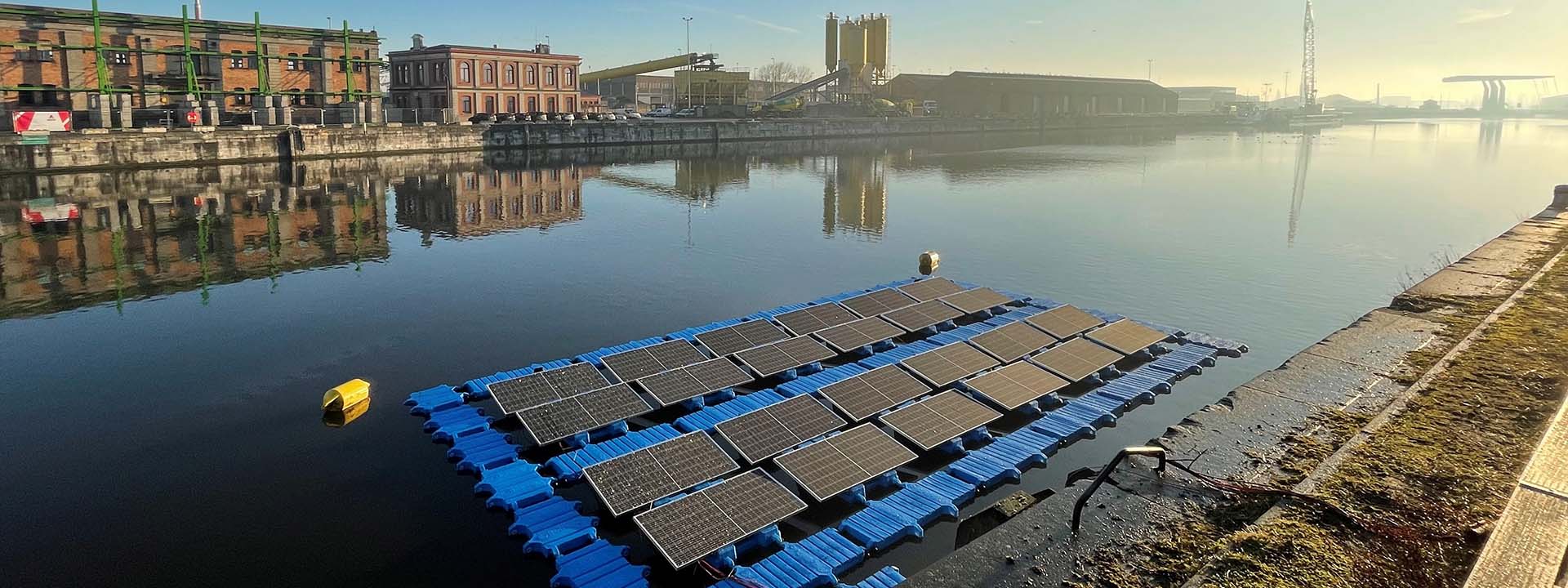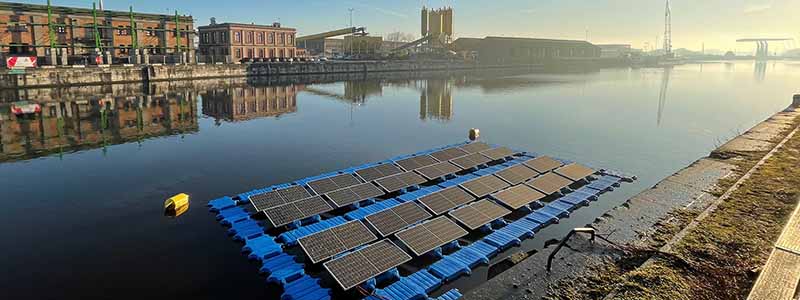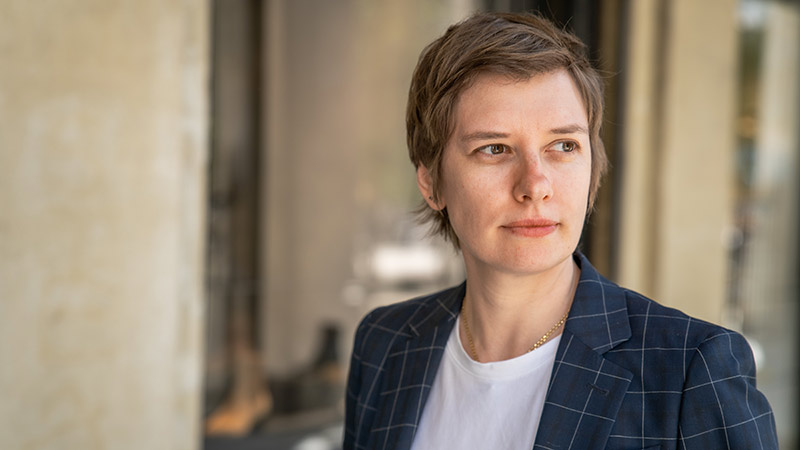

For many companies who want to strengthen their response to the threat of climate change, rooftop and land space for solar is something of a limiting factor.
“Solar panels are not enough to cover all their needs,” said Polina Vasilenko, founder of France-based HelioRec, “but if they have unused water space, we can occupy and generate clean energy.”
Having spent two decades in the energy sector, and with two master’s degrees in biotechnology and renewable energy, specializing in ocean energy, Vasilenko threw her energy behind a pioneering concept to fill in the gaps: a floating solar power plant for nearshore locations.
“My initial inspiration was to save the world,” she said. In 2019, the spark of an idea began Vasilenko’s journey to patent a floating solar system that could be customized by size, color and shape, depending on a customer’s unique requirements. The founding idea for HelioRec was born.

Five years later, HelioRec clients now include several utility companies around the world, and its floating solar power plants have not only survived severe weather over several years but continued to produce clean energy throughout.
“We work with any company near the shoreline who would like to reduce their CO2 emissions,” said Vasilenko. “But the end goal is to build as many power plants as we can and save as much CO2 as we can. When I see the power plant installed and it works, the result of our hard work gives me motivation to move forward.”
Vasilenko benefited from a program funded by Visa Foundation, which prioritizes investment in the growth of gender-diverse and inclusive small and micro businesses. Here, she shares her top tips for other founders venturing into the green technology space.
On raising money
As a solo founder, Vasilenko went through Greentech Europe,a program funded in partnership with Visa Foundation, to connect with investors and raise her first round, more than $1 million in seed funding. “Without grants or NGO money, it's very difficult to raise money, especially for hardware startups,” said Vasilenko. Hardware can be costly and time-consuming to test and develop so more investment is needed to iterate and manufacture.
“It's a game of numbers,” added Vasilenko, who spoke with about 150 investors before she closed her first seed round. “You speak a lot, you go to different events and pitch competitions, and hope that one of the investors will lead.”
On perseverance
Working in the male-dominated energy sector for more than two decades, Vasilenko was not immune to what felt like bias. But that didn’t keep her from launching HelioRec and standing behind her idea, no matter the obstacles to designing and manufacturing such a massive project while simultaneously raising capital. “If you have an idea, don’t be afraid to start, even if you fail. That knowledge and experience will be very valuable,” she advises other female founders.
Investors choose the person as much as the idea. Her initial investors later told her it was her perseverance that inspired them to invest in her dream. “They saw how continuously I was working on this for three and a half years,” she said. “I didn't give up, and for them, that meant I likely wouldn’t give up if I had the money to succeed.”
On managing people
“Diversity is extremely important,” said Vasilenko, who learned quickly that hiring a diverse staff who can see the same situation from different angles was key to moving forward. “It's better to spend more time hiring a diverse team than to go with the easiest path.” As CEO of nine employees, she considers herself more of a partner than a mentor or manager. “I learn from them. They learn from me,” she said. “I don’t believe in managing from the top. It's more like everyone should contribute as much as they can.”
In the process of building three new projects and raising another round of seed funding, Vasilenko looks to the future with hopes of building the company’s own manufacturing facility. While urgent warnings from last December’s COP28, the United Nations’ Climate Change Conference, have her concerned for the planet, she takes some comfort in knowing that she is doing what she can to make a difference.
“If I can contribute just one drop in the ocean, I will be happy that I lived my life knowing that I did everything I could that depends on me.”